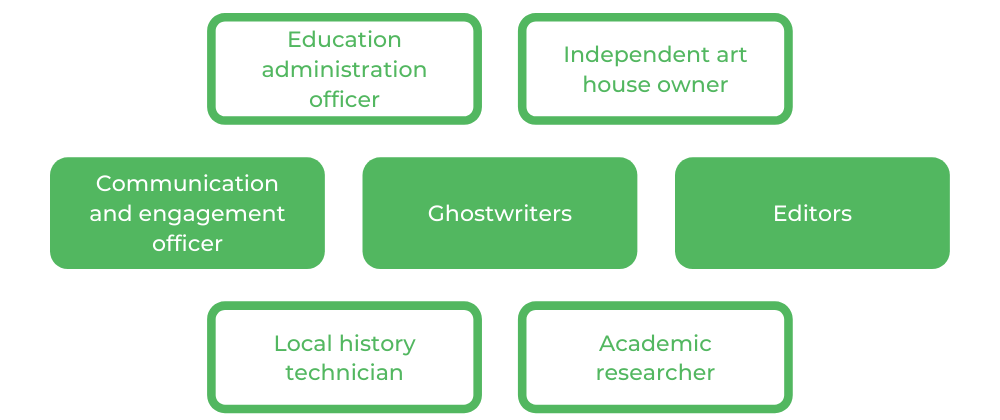Now that you’ve read through what studying a Bachelor of Arts at UQ is all about, are you still tossing up between which Arts degree would suit you best? Or whether an Arts degree is the right degree in the first place?
In either case, having a look at the pros and cons of studying a Bachelor of Arts at UQ can help enlighten your dilemma.
We’ve asked Michael, an UQ Arts graduate, to offer his personal perspective on his study experience. So, let’s dive in!
Why should you study a Bachelor of Arts at UQ?
Top 3 Pros of an Arts Degree
Top 3 Cons of an Arts Degree
Mistakes You Shouldn’t Make
Things to Know Before Starting a UQ Bachelor of Arts
What Makes this Degree Different
Motivations for Studying a UQ Bachelor of Arts
Potential Career Paths
Why should you study a Bachelor of Arts at UQ?
An Arts degree gives you the space to understand what you want out of life, career-wise and more generally.
While you graduate with a degree knowing how to articulate skills in your chosen major, you also gain critical thinking and analytical skills that are transferable to any career sector, should you wish to change your career trajectory.
Top 3 Pros of an Arts degree
#1: Flexibility of the majors
“For me, I was fresh out of high school and quite unsure what I wanted to study,” Michael says. “In my first year, I changed majors a couple of times until I discovered my true interests.”
Unlike other degrees, it’s easier in an Arts degree to explore what subject areas you want to pursue, simply because of the vast range of majors offered.
Finding the right major means you’ll better appreciate your study experience and have a strong sense of personal motivation. While switching majors may delay course graduation, it gives you clarity on your academic and career trajectory.
“I personally loved the array of subjects on offer, especially in my major, which allowed me to gain a clearer goal post graduation,” Michael says.
#2: Allows for creativity
“It may have just been the majors I selected, but almost all of my classes allowed me to be quite creative with my assignments,” Michael says.
For majors based on creative practice, this rings true wherein classes are more like spaces for workshopping your major projects and backing up the creative theory behind them.
Though, an Arts degree at UQ also offers majors in Mathematics, Philosophy, Criminology and other study areas where knowledge is more structured; corresponding to this, these classes will be taught more formally.
Nonetheless, Michael comments that “the tutors and course coordinators are usually super helpful in conveying ideas and structuring assignments to allow for varying learning styles, whether you have an analytical or creative approach.”
#3: Learning diversely
While their chosen major(s) allow Arts students to hone into their interests, a Bachelor of Arts at UQ incorporates electives that diversify their knowledge.
“I used my electives to pinpoint what I was passionate about, and what I’d rather not study in the future,” says Michael. “It is a great way to branch out of your discipline, try something new and figure out what is and isn’t your calling.”
Top 3 Cons of an Arts degree
#1: Self-sufficiency
Like any degree, “but especially with an Arts degree” Michael adds, this course requires you to be self-sufficient and organised.
While autonomous learning can be a pro, it leaves much of the responsibility onto your shoulders since the effort and quality you put into your study is reflected onto your grades.
“It is up to you to structure your courses and timetable to ensure you’re meeting all the criteria. You need to plan ahead, so understanding the rules and requirements for your degree is vital,” Michael says.
“You also need to be super organised during peak periods as some of your classes will have 2000 word assignments due on the same day.”
Here, Michael recommends joining study groups and asking your tutor questions to best prepare you and calm you during the assessment periods.
#2: Electives may seem redundant
For Michael, he says, “Electives could also be seen as a negative as you may need to study subjects you’re just not passionate about, and that’s totally fine.”
It may be tempting to put less effort towards your electives, but they are nonetheless a part of the course and are graded.
“I know I was super focused on my film degree in semester one and had absolutely no interest in my electives,” Michael shares. “But it’s still important to focus on them otherwise they will negatively affect your GPA.”
#3: Career connections
Unlike graduating from high-demand degrees such as Actuarial Studies or Commerce, where graduates roles are often offered by the Big 4 or other firms, an Arts graduate often experiences a different type of career trajectory.
It mainly hinges on work experience and career connections, especially since the arts industries are less funded by the Australian government.
Any regrets?
“Not really! I really loved my degree,” Michael says. “I tailored it to my interests and passions and got a lot out of it. An arts degree isn’t for everyone but it really suited me.”
What do you wish you had known before starting a UQ Bachelor of Arts?
Understandably, being a first-year student, it is easy to make simple mistakes whether in assessment submissions or in enrolments.
While there isn’t anything he wishes he’d known about his overall study experience, a technical bit of knowledge Michael wishes he knew is that “the numbers at the start of the course code represented the year to take the course.”
This led to a daunting introduction to his Arts degree. “On my first day of uni, I realised I’d accidentally signed myself up to take all third year courses and there’s nothing more stressful than not knowing what to do,” he says.
So if you’re starting this degree, make sure that you’re selecting units with the number 1 at the beginning of the course code!
What makes this degree different from the ones offered at other universities?
The campus and the diverse courses offered in a Bachelor of Arts at UQ is what differentiates it.
“I really loved the campus. I was interested in the UQ Abroad program and in a weird way, UQ just spoke to me,” Michael says.
“My majors and the courses that were on offer interested me more than what was offered in Adelaide [his home city] and that helped me make my final decision.”
What inspired you to choose a UQ Bachelor of Arts?
For Michael who moved from Adelaide to Brisbane to study his degree, he says, “I was excited to study at UQ for a change of atmosphere — the campus looked amazing and there was a friendly sense of community.”
“In the end, I just had a feeling UQ was the place for me and I 100% stand by that decision to this day,” he adds.
What are the possible career paths?
Where graduates end up in their career typically depends on the major(s) they studied, and this can even change if they feel that another career pathway suits them better.
A few general options include:
-
- Education administration officer
- Independent art house owner
- Communication and engagement officer
- Ghostwriters
- Editors
- Local history technician
- Academic researcher
Lynn Chen is a Content Writer at Art of Smart Education and is a Communication student at UTS with a major in Creative Writing. Lynn’s articles have been published in Vertigo, The Comma, and Shut Up and Go. In her spare time, she also writes poetry.





